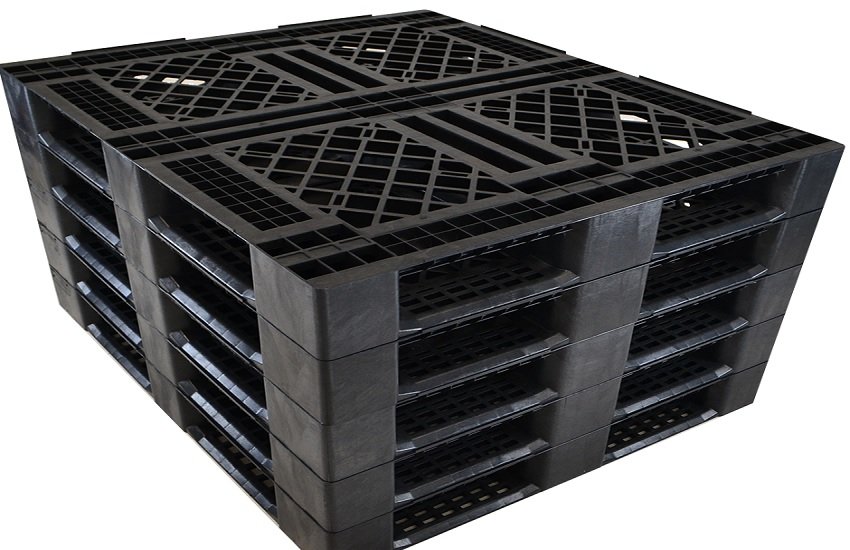What does Brexit mean for shipping goods into the EU from 1st January 2021?
Major changes will take place in shipping arrangements from the UK to the EU from 1 January, as Don Marshall of Exporta warns:
“This year has been tough on trading for many businesses due to the lockdown and restrictions imposed in response to COVID-19. We do not need any further disruptions to our export trade. But the threat of increased demand for ISM15 certified wooden pallets is very real . I would recommend anyone who relies on exporting to the EU to consider plastic pallets as an alternative. They can save time and money in the long term while ensuring compliance at all times.”
What is the problem?
Before Brexit, goods and people moved freely with minimal checks and documentation; moving goods within the EU was much the same as moving them within the United Kingdom. This is all set to change, as exporting goods to the EU will require hundreds of millions of customs declarations each year. The rules regarding Wood Packaging Materials (WPM) will also change as the UK Government website states:
“From 1 January 2021, all WPM moving between the UK and the EU must meet ISPM15 international standards by undergoing heat treatment and marking. All WPM may be subject to official checks either upon or after entry to the EU.
“Checks on WPM will continue to be carried out in the UK on a risk-targeted basis only. The plant health risk from WPM imported from the EU is not expected to change from 1 January 2021.”
What does this mean?
Essentially, all wooden packaging materials such as pallets, crates, boxes, cable drums, spools and dunnage must comply with the ISPM15 guidelines; ISPM15 stands for the “International Standard for Phytosanitary Measures No 15″. This certification, declaring wooden pallets have been heat-treated and are free from pests and fungus, is key to preventing the spread of foreign species from one geographical location to another.
Until now, any pallets used in the shipping of goods to countries within the EU were exempt from this requirement – any pallet could be used or reused when exporting goods. But from January, all wooden pallets, crates and boxes used to export outside of the UK (except for Ireland) will need to be certified and valid to comply with ISPM15.
We estimate this requirement will at least double the demand for certified wooden pallets almost overnight. Timcon, the industry body for wooden pallets, says this will not be an issue as they have been “planning for this for some time”.
But press headlines are more worrying, such as “How a no-deal Brexit will create shortages and could cripple UK food and drink firms”. There is real unease in the industry about the supply of certified wooden pallets. One alternative solution is plastic pallets, they are already exempt from ISMP15 and completely suitable to use instead.
5 reasons to consider switching from wooden pallets to recycled plastic instead:
- They are exempt from ISPM15
Plastic pallets, boxes, crates, and containers are naturally hygienic, and parasites, bugs, and fungi cannot live in or attach to them. This means that they do not require any specific certification for exporting to the EU, or any other country for that matter.
- They are more cost-effective
It is often thought that plastic pallets are more expensive than those made from wood. This was the case when they were first introduced a few years ago, but they are far more common today, as production techniques have evolved to steadily reduce costs.
There is also now a shortage of sustainable wood sources. And with increased demand outstripping supply, prices have been increasing steadily for several years now. The price gap between wood and plastic is narrower than ever, before making plastic a viable alternative.
- Plastic Pallets last longer than wooden pallets
Wooden pallets are generally only good enough for a few trips and can damage easily. Whereas plastic pallets are engineered for specific uses, scientifically designed to be more accurate, consistent, with guaranteed suitability for a range of different jobs. This means a plastic pallet can last for up to 10 years, at least 25 times the lifespan of a wooden pallet. This makes them a more robust, sustainable and cost-effective solution in the medium to long term than using wooden pallets.
- Plastic Pallets are more sustainable and environmentally friendly
98% of all pallets sold by Exporta are made from recycled material, which helps to reduce plastic waste. Crucially, they do not end up in landfill, which is where the majority of old wooden pallets go at the end of their lifespan. Every plastic pallet sold by Exporta is recyclable and we offer a free plastic recycling scheme.
- Plastic Pallets are scientifically designed and therefore more consistent
Plastic pallets go through a very robust technical design and testing process before they come onto the market. The machines that make them are calibrated – so when a plastic pallet is designed to carry a one-ton on a rack, it is designed, tested, and approved to do so. Wooden pallets are obviously made from a natural material with natural flaws, grains and knots, which means it is not always 100% possible to guarantee exact tolerance and capacity.












